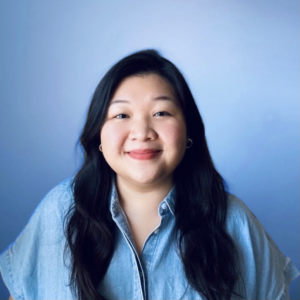Teresa Phan is an Interaction Designer at Ascom Americas. Her work focuses on the user experience of the healthcare communication software solutions delivered by the Research and Development team. She is a double Tar Heel, receiving her BA in Public Policy in 2015 and her MS in Information Science in 2020.
1. Tell us a little more about the work you are currently engaged in. What are your main job responsibilities?
Since some of the software we work on are considered medical devices, my main job responsibilities consist of usability analysis and risk management. I perform usability analysis on bugs and improvements to ensure that our solutions align with what the end user is trying to accomplish, whether it’s a technical user setting up the software or nurses answering patient alerts. For risk management, I evaluate the same bugs and improvements to understand how they could impact delivery of care to patients.
2. Please share a brief overview of your career trajectory. What steps did you take after leaving UNC to end up where you are now?
I graduated in May 2020, a few months into the pandemic, without a job lined up. Fortunately, my friends, who are public health professionals, were working on creating Navigating COVID, an interactive website with guided navigation to search for relevant resources, and I was able to come onto the project as a user experience (UX) designer/researcher with 3 other UX team members. This was an incredibly helpful project to be on since it gave me “real world” experiences, such as working cross-functionally with the content team and development team. When I was interviewing for my current position, I made a point to discuss this, knowing that the job required collaboration with developers.
3. What professional development resources and programs did you use or participate in while at UNC and how did these benefit you?
While at UNC, I participated in so many professional development programs! The School of Information and Library Science (SILS) had a speed networking event which helped me build and practice my elevator pitch while getting to meet people in the UX career field. The Graduate School Professional Development program held the Gallup Strengths Workshop, giving me perspective on strengths that I wasn’t aware of and gave examples of how to leverage them in the workplace. Diversity and Student Success offered the Emotion Intelligence Skills Development Workshop, where we focused on how to improve the EI skills that we would like to develop. I think that workshops like the Gallup Strengths Workshop and Emotional Intelligence Skills Development Workshop overlap with personal development and believe that self-awareness is a great asset to have in the workplace.
4. What steps did you take when you were still a graduate student to prepare yourself for the job market/your industry?
Aside from attending professional development events, I started looking at jobs early and attended conferences. While I wasn’t applying yet, I wanted to understand the skills and experiences required for the jobs I was interested in and then figure out which classes I could take, what clubs I could join, and what projects I could do in order to hone those skills. In my industry, many jobs require portfolios, so I knew that I could find portfolios of experienced designers, and this was also a great way to network with other designers and get career specific feedback on my own portfolio and resume. I attended the UX Y’all Conference, which was another way to meet people with similar interests while learning more about UX, and they usually have booths where you can speak with company representatives who are looking to hire.
5. What skills/competencies did you acquire in graduate school that you apply in your job today or that have helped you progress in your career? (Examples can include specific technical skills and/or more general competencies).
During my time in graduate school, I developed the skill of communicating for different audiences, which I apply in my job today. My team consists of software developers, documentation validators, and test engineers, and while we all work on the same product, we see the product from different lenses. In order to be successful in my job and perform proper usability analyses, I have to ask clarifying questions to understand the problems and solutions from multiple perspectives to provide a comprehensive analysis that is then reviewed by people in different functions and approved as part of the software documentation process.
6. What advice would you offer current graduate students about professional development in general or career advice for your industry/position specifically?
My advice would be to not overthink networking. Rather than going in with the intention of finding a job, go in with the intention of getting to know someone and share your excitement about your common interests! People are more likely to give you advice or offer to refer you if they get to know you, and by talking to them, you can get more insights into the company or the team even before the interview process starts.


